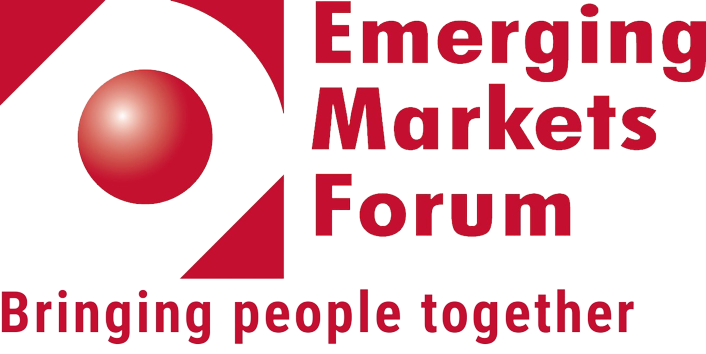Sir Suma Chakrabarti new Co-Chair of the Eurasia Meeting
We are most honored and pleased to announce that Sir Suma Chakrabarti, has agreed to be the Co-Chair of the Eurasia Meeting of the Emerging Markets Forum.
Sir Suma Chakrabarti is Adviser to the Presidents of Kazakstan and Uzbekistan on economic development, effective governance and international cooperation. He is also Deputy Chair of the Kazakhstan Supreme Council on Reforms, and of the Management Council of the Astana International Financial Centre. Sir Suma is also Chair of the Board of Trustees of ODI, Britain’s premier international development think tank, and works as a Global Commissioner of the New Climate Economy network, as a member of the Clean Growth Leadership Network, the Advisory Board of ECube Climate Finance, the WHO Commission examining post-COVID19 health systems in Europe, the Board of the Project for Modern Democracy think tank, the Commission for Smart Government, of the International Advisory Council of the Oxford India Centre for Sustainable Development, and of the WEF Eurasia Policy Group, and as adviser to the Karta Initiative.
Sir Suma also writes and speaks on various international development, climate change, and public service reform issues.
Sir Suma was until July 2020 the sixth President of the European Bank for Reconstruction and Development (EBRD), a multilateral development bank (MDB) with global membership. Sir Suma served two full four year terms, having won competitive elections in 2012 and in 2016.
Sir Suma has extensive experience in international development and UK public service reform. He is also recognised as a leader of organisations undergoing strategic redirection and management change.
During his tenure at the EBRD, Sir Suma led the expansion of the institution’s geographical focus to the Middle East and placed greater stress on the less advanced countries of operation. While continuing with its private sector focused mandate, Sir Suma led the EBRD’s advocacy for market-friendly policy reform, better governance and improved investment climates, engaging personally with the political leaders of the EBRD’s countries of operation and the CEOs of private and public sector clients.
During Sir Suma’s tenure, the EBRD moved centre stage among the MDBs in the delivery of the Sustainable Development Goals. During his last eight years as President, EBRD delivered strongly in its core areas of infrastructure and energy, municipal services, industry, commerce and agribusiness, and through support for financial institutions, SMEs and larger private sector and state enterprise clients. In addition, Sir Suma led the drive for EBRD to become the leading MDB on the green economy, to do much more to support women in business and the labour force, to channel more support to excluded groups and regions, and to integrate refugees in to local economies. Under Sir Suma, the EBRD business model proved to be flexible and responsive to different geo-political and economic contexts, including the economic crisis caused by the COVID19 pandemic.
The centrality of this modernised development business model and its success made EBRD the MDB to join. During Sir Suma’s tenure, the membership of EBRD grew significantly to 71 shareholders, with both recipient and non-recipient countries joining. The membership of China and India were particularly notable moments in this period as it ensured all the major G20 countries were part of EBRD.
Sir Suma also led a very significant change management process within the EBRD during his eight years as President. Management quality improved and the leadership cadre became much more diverse, both in terms of gender and nationality. The organisation is now regarded by its peers as one of the most effective and efficient MDBs.
This period of modernisation resulted in the EBRD achieving record investment and profit levels in 2019, the last full year of Sir Suma’s leadership. And in Sir Suma’s last six months as President, the EBRD posted record investment levels in response to the COVID19-related economic crisis.
Before becoming President of the EBRD, Sir Suma had a very successful career in the UK civil service and was Permanent Secretary (most senior civil servant) successively at the Department for International Development (2002-2007) and the Ministry of Justice (2007-2012). Both ministries became internationally and domestically influential on policy and delivery issues under Sir Suma’s leadership. Before leading these two Ministries, Sir Suma worked at the UK Cabinet Office and Treasury, where he led the new focus on results-based public service reform by creating the system of Public Service Agreements, which defined the outcomes the state was expected to deliver.
Sir Suma’s earlier career was in international development, starting as a ODI Fellow in Botswana in the early 1980s, and encompassing a range of economic and administrative posts in the Overseas Development Administration (DFID’s predecessor) in London and in the UK office at the World Bank and IMF.
After studying Politics, Philosophy and Economics at the University of Oxford, Sir Suma took a Masters in Development Economics at the University of Sussex. He is a honorary Fellow of New College, Oxford University, a honorary bencher at the Middle Temple, and also holds honorary doctorates from the Universities of Sussex, East Anglia, and the Bucharest University of Economic Sciences, as well as prestigious honours from Kosovo, Kazakhstan and Uzbekistan.
Sir Suma was knighted in 2006 for his work in international development.
Sir Suma was born in 1959 in West Bengal, India, and moved to the UK when he was five. He is married with one daughter.
